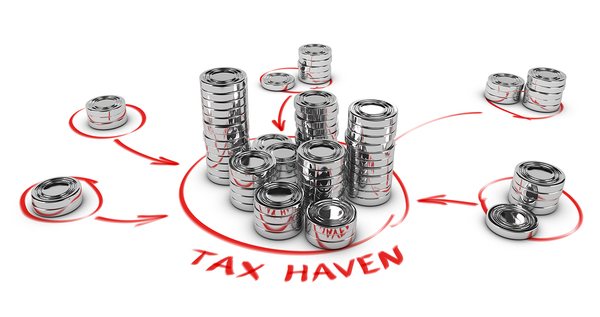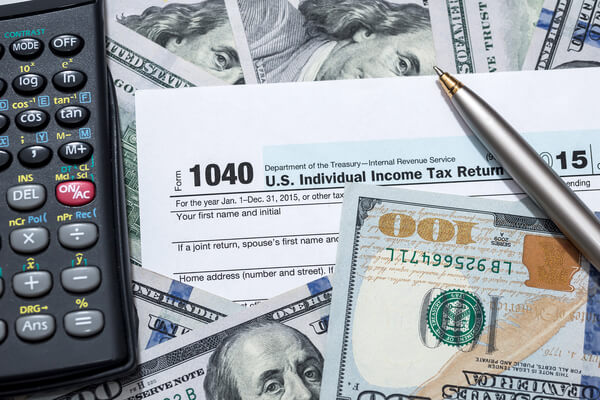The United States has a progressive tax system, which means that lower-income individuals pay less in taxes based on a percentage of their income. As you make more money, that percentage increases. The most effective way to avoid overpaying taxes, then, is to have less taxable income. There are a variety of ways to go about decreasing your taxable income, but you must engage in tax planning to achieve tax avoidance.
The Difference Between Tax Preparation and Tax Planning
Tax planning is an all-year event. It requires deliberate and calculated movements of assets or money to decrease taxable income or increase deductions and credits. Also, it often requires specific tracking and reporting as well.
Tax preparation is the act of actually preparing your tax documents at the end of the year. CPAs or accountants generally engage in tax preparation, but they often do not help with tax planning. Instead, a financial advisor or your own knowledge of tax avoidance strategies is much more helpful for tax planning.
Tax preparation looks at the situation as it was throughout the year while tax planning changes your status to aid with tax preparation at tax time in the future. Tax planning takes a proactive look at your finances to consider how you can save money in the future. It contemplates how your income is impacting your return, whether you can take additional deductions or credits, and other items that may influence your taxes owed.

Tax Avoidance: Is This Legal?
Some taxpayers become wary of tax planning because they are concerned that tax avoidance is illegal or unethical. However, tax avoidance and tax evasion are very different concepts. Essentially, tax avoidance is legal while tax evasion is not.
When you avoid taxes, you are making efforts to plan effectively to minimize your tax burden. The methods you use are specifically approved by the IRS and frequently used by businesses and individuals alike. Taking full advantage of the tax code is not illegal or unethical—it is smart.
Tax evasion, on the other hand, often involves not reporting income or reporting expenses that are not legally allowed. Tax evasion may also include not paying taxes legally owed, whether they are income taxes, employment taxes, or state sales tax.

Tax Planning Steps You Can Take Today
Paying less in taxes requires tax planning. While a decrease in taxes owed is sometimes a happy surprise, careful preparation and consideration cause most declines. The following tax avoidance strategies may be a stepping stone to effective tax planning for years to come.
Take Advantage of Timing
Timing is important when it comes to tax planning. If you have had a good year regarding your investments, for example, you may want to wait to “cash-out” until next year if you know your other income may be lower. Planning sales and even purchases so that it decreases your overall income on an annual basis can significantly cut down on your tax obligations, potentially putting you in a lower tax bracket.
Paying ahead on expenses in high-income years and making retirement and charitable contributions can also be helpful from a business perspective.
You can also engage in income spreading, which means that you receive revenue for a specific transaction or series of transactions over a period of several years instead of all at once. A large deal may place you into a higher tax bracket, so spreading out your income over time can ultimately lead to paying a lower total amount of taxes.
Reducing Taxes with a Business
Many individuals use a company to decrease their tax burden. Companies are permitted to deduct their expenses before determining taxable income. This is not true for individuals. If you create a business, you may be able to creatively deduct ordinary expenses that you also use for your business.
You can also deduct the losses from your business on your individual tax return as well. This can decrease your taxes owed at your “day job” significantly. This little bit of tax benefit may be just the incentive you need to try out your entrepreneurial ideas. Of course, creating your own business may have asset protection benefits as well.
Avoiding Capital Gains Tax
Capital gains tax occurs when you earn income from selling an investment. Capital gains tax is generally less than income from other sources, so it makes sense to invest when you can and hold your investments long enough for them to be considered “long term,” which has a lower tax rate. Most investments that are held over one year are “long term.” Short-term investments are usually taxed at your normal tax rate.
Further reducing your capital gains tax can help you keep more of your investment income for yourself, increasing the investment’s overall effectiveness.
You can also invest using a retirement account with tax advantages. Instead of investing in stocks or bonds, you could use retirement accounts to decrease your taxable income in retirement. IRAs and 401(k)s are designed to avoid capital gains taxes as they grow. Roth IRAs are also tax-free when you take withdrawals in retirement.

Tax Planning Leads to Tax Avoidance
Tax planning does take work, but the results are often significant, saving some individuals thousands in tax payments every year. Protect Wealth Academy has an entire library devoted to teaching you more about the above strategies and others to decrease your taxes owed. After all, there is no patriotic duty to pay extra in taxes! Sign up for a free membership.
